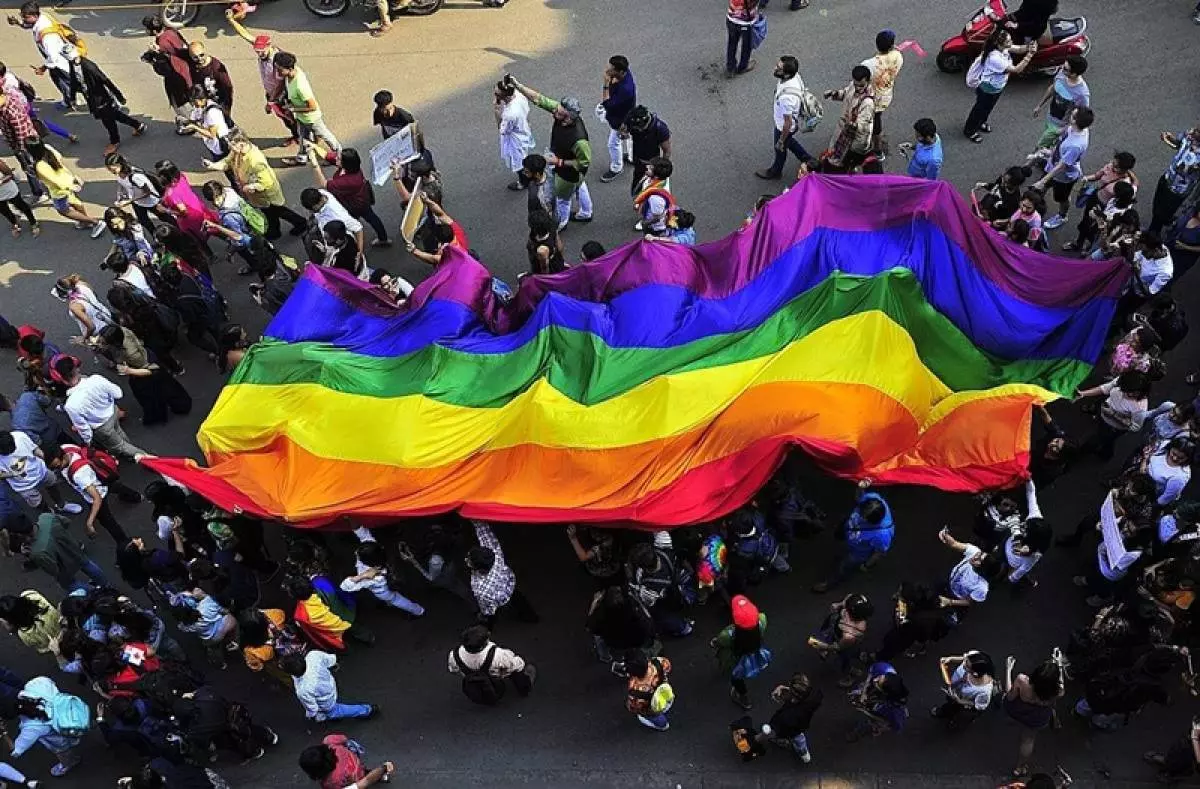
- Home
- India
- World
- Premium
- THE FEDERAL SPECIAL
- Analysis
- States
- Perspective
- Videos
- Sports
- Education
- Entertainment
- Elections
- Features
- Health
- Business
- Series
- In memoriam: Sheikh Mujibur Rahman
- Bishnoi's Men
- NEET TANGLE
- Economy Series
- Earth Day
- Kashmir’s Frozen Turbulence
- India@75
- The legend of Ramjanmabhoomi
- Liberalisation@30
- How to tame a dragon
- Celebrating biodiversity
- Farm Matters
- 50 days of solitude
- Bringing Migrants Home
- Budget 2020
- Jharkhand Votes
- The Federal Investigates
- The Federal Impact
- Vanishing Sand
- Gandhi @ 150
- Andhra Today
- Field report
- Operation Gulmarg
- Pandemic @1 Mn in India
- The Federal Year-End
- The Zero Year
- Science
- Brand studio
- Newsletter
- Elections 2024
- Events
- Home
- IndiaIndia
- World
- Analysis
- StatesStates
- PerspectivePerspective
- VideosVideos
- Sports
- Education
- Entertainment
- ElectionsElections
- Features
- Health
- BusinessBusiness
- Premium
- Loading...
Premium - Events

The Supreme Court’s verdict is not new. It is not novel. It is simply the bitter pill that is part of the queer daily dose.
The day began on an optimistic note. A slew of social media stories with clapping hands emojis lauded the live updates coming out of the Supreme Court. The news streams were dropping morsels of fresh development that boded better with every new piece about the ruling on the right to marry the queer community had been waiting for with baited breath.
Allies and community folk all kept their eyes peeled for the judgement that came out piecemeal by the four judges pronouncing it — Chief Justice of India DY Chandrachud, Justice Sanjay Kishan Kaul, Justice Ravindra Bhat and Justice PS Narasimha. It was a historic day; one that had the potential to define queer narratives across the country and, finally, legitimise the very people who, prior to another historic ruling on September 7, 2018, had been deemed ‘criminals’ by Indian law.
A disheartening moment
A series of surreally positive updates kept coming out of the court, each more hope-inducing than the next for the believers; “It isn’t only an English-speaking, white-collar man that can claim to be queer, but just as much a woman working an agricultural job in a village.” Delightful! Finally, pushback against the minimisation of queerness as an elite issue.
“Choosing a life partner is an integral part of choosing the course of one’s life. This right goes to the root of the right to life and liberty under Article 21.” Incredible! An acknowledgment that a queer person has just as much right to a real partnership as a heterosexual one.
“Non-heterosexual unions and heterosexual unions must be seen as both sides of the same coin. This moment is an opportunity to remedy historical injustice and discrimination…” Yes! And now for the big finish… “But, you know, there’s nothing we will do about it.”
No, of course, that’s not an official quote. It wasn’t the statement made after an initial hearing that lasted ten days, post which the court reserved its judgement in May 2023. The official quote, after a judgement where Justice Chandrachud and Justice Kaul supported the recognition of these rights, but were outvoted by a majority in Justice Bhat, Justice Hima Kohli, and Justice Narasimha, was about same-sex marriage being “for the Parliament to recognise.” But I assure you, it’s just as disheartening.
A long, icy road ahead
It is a moment that feels eerily familiar. When I trace it back, I remember the last time I felt this way. It was on September 7, 2018. You might wonder why; why, on a day when queer people across the country were celebrating and feeling freer than they had in years, did I feel so heartsore? Why wasn’t I euphoric that homosexuality had been decriminalised in my country? It was a win… was it not?
If you read that sentence back carefully — either as an outraged ally or a disappointed queer person — you’ll realise why. You’ll realise how heartbreaking it was that, in 2018 — a mere five years ago — a queer person was considered an actual criminal in this country; punishable by up to 10 years in prison. Punishable for longer than theft (up to 3 years), aggravated assault (1-5 years), or even manslaughter (5-7 years). A criminal; for loving someone, for sleeping with them, for wearing what they felt comfortable in, for fighting for it without hurting a soul.
I felt a cold despair, one that served as a reminder of how long and arduous the road ahead was for the queer Indian. It was a road riddled with black ice and hairpin bends, with a perfect view of the heterosexual road beside it; well-maintained with wide turns and lush Amaltas lining the curb. It was infuriating, debilitating; and unavoidable. It was the only road we had.
As a ‘straight-passing’ bisexual woman that received familial acceptance, it often seemed a touch fraudulent for me to be as outraged. I didn’t feel ‘queer enough’ to be angry the way some of my other queer friends had the right to be; trans women that had been shamed and pushed out of their families, gay men in love who had been desperate to marry for years, non-binary folks that were always treated as indecisive, ‘looking for their place and finding none.’ I had, by comparison, lived a life with the social luxuries of a heteronormative person — so did my dismay even matter?
It took a while for me to realise that it absolutely did. It mattered for me, yes; because I would never be able to tell if I had been safe because of my heteronormative choices — or because I had made heteronormative choices so that I would be safe. But it mattered because queer opinions are the ones that matter. Especially when it’s a decision that only impacts queer people.
The need for queer input
There was not one queer judge on that bench; and that is by design. The effort to include queer voices in this scale of decision-making has simply never existed; hell, cis-women just got a quota in the Parliament last month that will take years to actually see effect. It has almost always been heterosexual people making decisions for queer people, with little to no queer input; and it remains the reason the queer community will continue to fight for basic human rights that the average straight person hasn’t thought about, even once in their lifetime. The right to marry, the right to have kids — even the right to be openly affectionate with the person you love…
17th October had the makings of a red-letter day for the queer Indian; but no one allowed themselves to hope with abandon. The reaction to the ruling was one of disappointment, but not crushing disappointment, because we wouldn’t dare to dream that big. The passing of this buck to a player you know is not on your team is hard to watch; harder still with the empty echoes of the Supreme Court’s ‘deepest sympathies’. But it is not new. It is not novel. It is simply the bitter pill that is part of our daily dose. For, really; what would queerness be without unabating disappointment?
(The Federal seeks to present views and opinions from all sides of the spectrum. The information, ideas or opinions in the articles are of the author and do not necessarily reflect the views of The Federal.)


